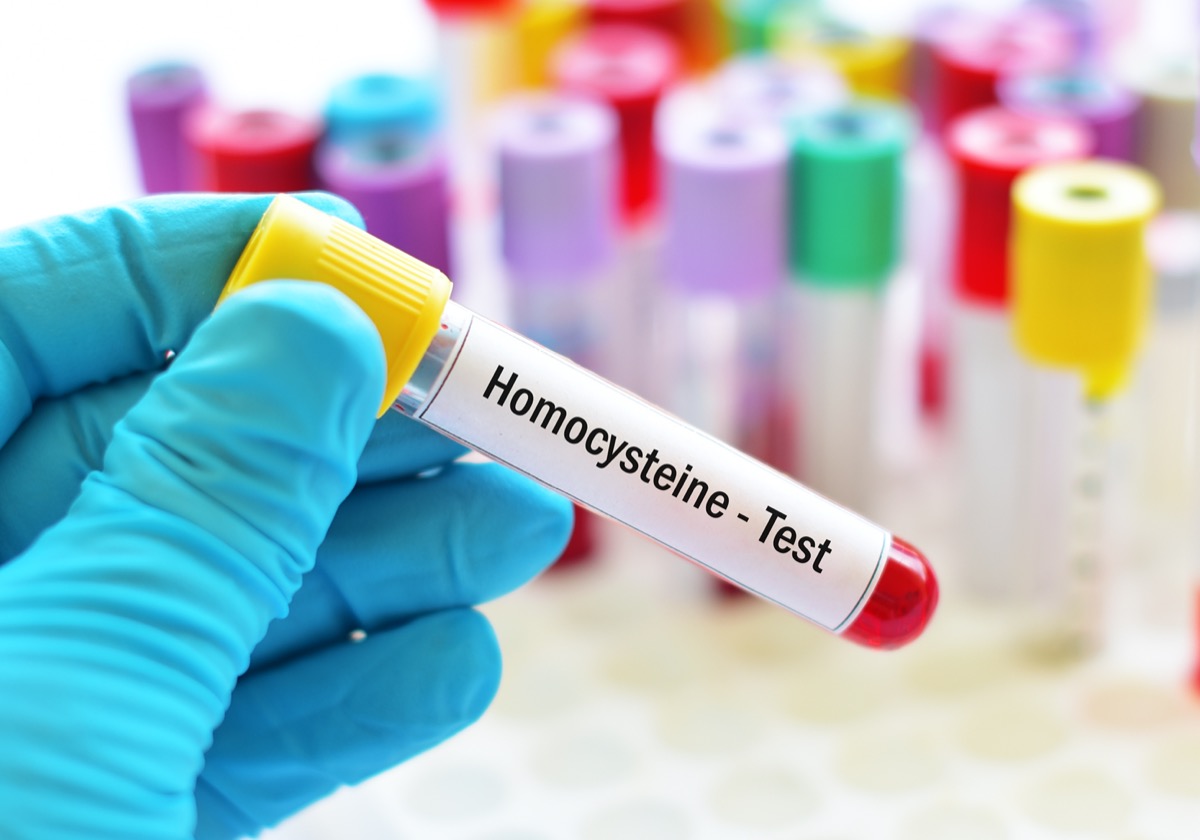Elevated Homocysteine Blood Levels
Homocysteine is a kind of amino acid. For those who do not know, an amino acid is the foundational piece of protein. Oftentimes, amino acids are very helpful within the body and are required for a number of functions. However, anything in excess can have negative consequences for your body. Elevated homocysteine levels, for example, have long been associated with stroke, heart disease, and abnormal clotting. Abnormal clots can cause life-threatening medical conditions like deep vein thrombosis (DVT), which is oftentimes fatal, and pulmonary embolism (PE).

Elevated homocysteine is thought to be the result of a vitamin deficiency. Those who lack folic acid, vitamin B6 and B12 are at the highest risk of abnormal homocysteine levels. If you suspect you are lacking these vitamins and have other conditions listed in this article, you should get your levels checked. Unhealthy levels of homocysteine is considered above 15-micromoles/liter, while healthy levels are below 10-12-micromoles/liter.
Studies have found that elevated homocysteine will double the risk of Alzheimer’s disease. Fortunately, B-vitamin supplementation was able to reduce the risk and even halted the wasting of the brain in regions where dementia is often quick to develop.
More from Things Health
-
Causes and Risk Factors for Fibromyalgia
Fibromyalgia is best known as a pain disorder. As with other conditions, it can influence people in different ways. Although many experts in the field…
-
Signs, Symptoms and Risk Factors of Lupus
Lupus, an autoimmune disorder, is a chronic condition (which means that it lasts for years) that affects approximately 1.5 million Americans. Lupus is one disease…
-
Study Suggests That Stroke and Dementia Risk Is Linked to Artificial Sweeteners
Consuming a can a day of low- or no-sugar soft drink is associated with a much higher risk of having a stroke or developing dementia,…
-
A List of The Best Vitamins and Supplements for People with Diabetes
Did you know that supplementing can help manage symptoms of diabetes? We all know that a well-balanced low GI diet, regular movement and Insulin and…
-
Types Of Skin Cancer
Skin cancer happens when skin cells are damaged, for instance, by overexposure to ultraviolet rays from the sun. Melanoma - the most dangerous type of…






